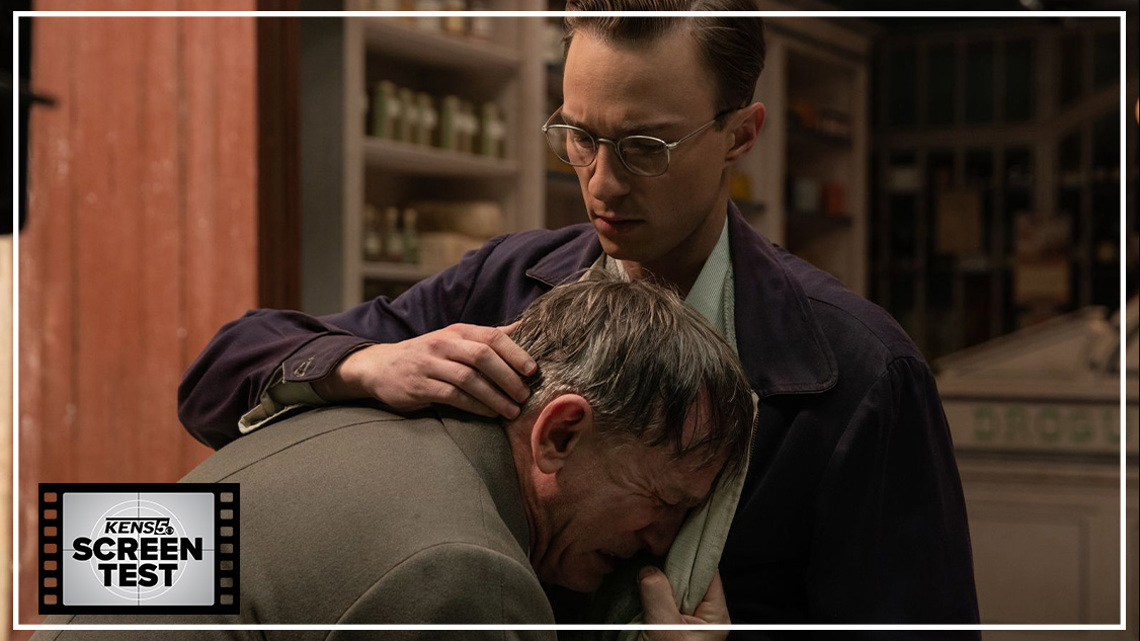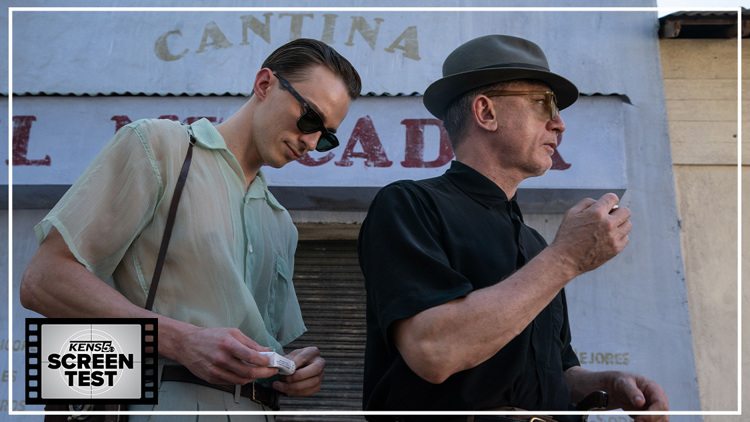USA, — If eyes are the windows to the soul, then Daniel Craig is peering between the blinds as a damaged lover in Luca Guadagnino’s “Queer.”
I don’t just mean in a literal sense, the fact that Craig’s eyes always look like they’re squinting with skepticism even as they pop wide open with revelation, an attribute that makes him instantly believable as James Bond and Detective Benoit Blanc. I also mean in a symbolic, even spiritual way—the only thing his characters seem to fear more than encroaching danger, whether it’s a collapsing subway tunnel or the prospect of romantic commitment, is a life without danger at all. So it goes that Craig’s William Lee, a chiseled American expat trying desperately to emigrate from a past defined by more than just his home country, keeps a gun tucked into his waist while traipsing around a postcard-ready vision of Mexico City charming men to bed, though there’s little indication he’s ever had to use it.
As blunt a metaphor as the gun may be for the oppression gay people were facing in the 1950s, what it represents in William’s immediate circumstances – comfortable confines with a small community of queer companions who are generally looking out for each other – is more slippery to parse. But so are his intentions every time he locks eyes with a handsome lad, challenging himself more than anyone else to keep his expectations in check so that desire doesn’t risk becoming something more volatile. Or rather, something real.
That anxiety – projected primarily through Craig’s enigmatic barnstormer of a performance, but also through production design so immaculately manicured that we start to see the artifice between the stabs of light and blades of shadow before long – burns tighter and closer here than in any Guadagnino film since “Call Me By Your Name,” and the sting reaches all the way into your gut by the time “Queer’s” dazzling, cosmic final scenes unspool. But Guadagnino and screenwriter Justin Kuritzkes (adapting Willam S. Burroughs’ 1985 novel) set things in motion by allowing us to appreciate the slow-rising plume of smoke in the distance, sparks twinkling in the form of a surprise Nirvana needle drop and a sunset that looks like the last one the world will ever see. William and his latest romantic muse, the mysterious Eugene (Drew Starkey), are too busy strolling through the streets, eating fancy meals and undressing each other to notice the encroaching blaze for themselves.
But they’re not immune to “Queer’s” exquisite extrapolation about the hazards of connection: It’s also evident in the ways they test each other, as if a caress or gaze will start burning the longer it’s held. This is the language of longing, and Guadagnino envisions it in ways both magnificent and treacherous.


Spinning together stunning visual tableaus and elegiac moods, “Queer” is a romance unabashedly created in its director’s vision, which ultimately means it isn’t worth our time feeling out a traditional narrative structure lest we forget to soak in the beauty of his worlds and the manner in which they start to feel like traps. Mexico City looks intoxicating, the air itself sweating from the allure of possibility, and when William and Eugene first meet amid a cockfight-watching crowd, you sense two people drawn to each other partly out of the risk of what their meet-cute can become.
At the same time, “Queer” slots right into Guadagnino’s interest in stories of people (highly attractive and strikingly filmed people, mind you) out of their natural element and with nothing to compensate for it but their passion. That’s what makes “Queer” of a thematic piece with “Challengers,” Guadagnino’s other 2024 movie released in the spring, even as “Queer’s” latter-stage weirdness makes the spiky romantic competition of that movie go down like a glass of warm milk at bedtime. “Queer” is a less accessible, more uncompromising entry in the director’s oeuvre, and no one could be faulted for viewing his most jarring leaps in tone and logic as desperation. But for a director who so closely marries emotionality and aesthetic – while here deploying an actor willing to do the same in Craig – we might also consider what about William the film is showing us in its most bracingly strange scenes, namely when the story skips to South America and his search of a vine that will allegedly grant him the power of telepathy takes center stage.
What does all this have to do with love? “Queer” wouldn’t be as memorable as it is if the answer to that could be plainly typed out here. But at least part of the equation involves the way William and Eugene occasionally challenge each other, either by questioning the other’s sexuality or peering skeptically from the other side of the room. It’s an engrossing chemistry, made all the more tantalizing by how effortlessly Starkey glides between tender caregiver and self-interested loner. It isn’t the intimacy between William and Eugene that’s in question when things are at their steamiest; it’s what both are looking to get out of it that “Queer” spins a mystery out of. Craig and Starkey hide plenty behind their smiles; in this movie, Guadagnino seems to suggest, the closer we think we may be to loving someone, the harder it becomes to understand them. Maybe that’s why a reckoning of sorts in the final act appears to take after Alex Garland’s cataclysmic scifi yarn “Annihilation,” of all movies.
Trent Reznor and Atticus Ross, frequent Guadagnino collaborators, conjure up a musical score that tugs you toward the edge of William's cravings with their curious horns, sensuous strings and, later, blasts of feverish orchestra. As this shapeshifting love blooms, and recedes and springs forth, Guadagnino — working with the Thai cinematographer Sayombhu Mukdeeprom — punches ever more forcefully through the artificiality of his Mexico City via surrealist touches beckoning to a troubled personal history for William. Is it inflected with abuse, or perhaps abandonment? We never get the full picture, but it’s enough to drive William to shoot up alone at night as the movie prepares to switch into an all-engulfing register. It’s as if he can only chase a shot with another shot. If the “Why?” of it all is occasionally frustrating, then the movie’s suggestion that William could hardly answer that question for himself gains clarity through its sheer honesty. More important than what “Queer” is building towards could very well be what it’s being built out of.
Craig is certainly cognizant of that quandary; it’s fused into every facet of his performance. The sterling turn is one of controlled abandon, his vocal intonations performing acrobatics and his physicality infused with impulsive flourishes that prove two things: 1) He understands how fractured his character is, and 2) He doesn’t have any better idea than his director or any of us for how to save him. Toggling between scuzzy charm and self-disparagement before things take a more dangerous turn in the film’s trip of a third act, the Brit known first and foremost for Bond manages to reorient our perspective of him as an actor by opening up sinkholes of vulnerability even 007 may not be able to climb his way out of. This is a movie that opens by swooning you out of your senses, yet I’m still not entirely sure it doesn’t end as a nightmare.
"Queer" is now playing in theaters. It's rated R for strong sexual content, graphic nudity, strong drug content, language and brief violence. Runtime: 2 hours, 17 minutes.
Starring Daniel Craig, Drew Starkey, Jason Schwartzman, Omar Apollo
Directed by Luca Guadagnino; written by Justin Kuritzkes from William S. Burroughs' novel
2024



